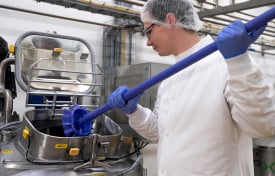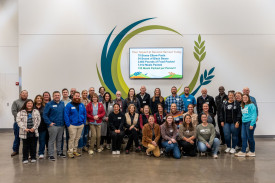 The University of California, Davis is nearly three years into taking on a big task: “sequencing the genomes of 100,000 bacteria and viruses that cause serious foodborne illnesses in people around the world.” The large undertaking is meant to provide some additional inroads into taking on food safety, using genetic material to track and understand pathogens in the food supply.
The University of California, Davis is nearly three years into taking on a big task: “sequencing the genomes of 100,000 bacteria and viruses that cause serious foodborne illnesses in people around the world.” The large undertaking is meant to provide some additional inroads into taking on food safety, using genetic material to track and understand pathogens in the food supply.
In a recent article, Marketwatch explains, the: "100K Foodborne Pathogen Genome Project” will result in a public database used “to help speed the identification of bacteria responsible for foodborne outbreaks and significantly reduce the typical public health response time to outbreaks from weeks to days using next-generation sequencing platforms.”
The director of the project, Professor Bart Weimer explains that the ability to sequence the genetic data of these disease-causing bacteria will provide information to help make “diagnostic tests quicker, more reliable, more accurate and more cost-effective.” Begun in 2012, the project is slated to last five years. For more insight on 100K Project, you can click here.







